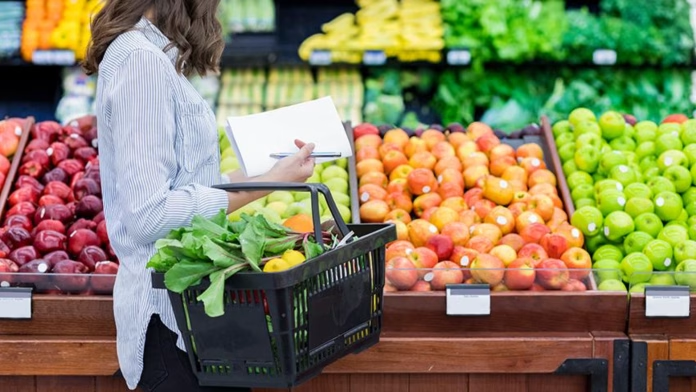In November, the rate of inflation in British groceries decelerated once more. Industry data revealed on Tuesday that the increase in the cost of a typical Christmas dinner is also notably lower than the overall inflation rate.
Consumers, the Bank of England assessing interest rate trends, and lawmakers are closely monitoring the recent decline in food inflation. This scrutiny is particularly relevant in light of Prime Minister Rishi Sunak’s commitment to reducing overall inflation by half this year, especially with a likely national election in 2024.
According to market research firm Kantar, the annual inflation in grocery prices stood at 9.1% for the four weeks ending on November 26, a slight decrease from the 9.7% reported in the previous month. During the same period, grocery sales experienced a year-on-year increase of 6.3%, with 28.4% of the sales occurring through promotional offers, marking the highest figure in over two years.
The researcher reported that the average expense for a frozen turkey Christmas dinner serving four, inclusive of all the accompaniments, Christmas pudding, and sparkling wine, increased by 1.3%, reaching £31.71 ($40.00). However, Brussels sprouts and the pudding were more affordable compared to the previous year.
Kantar noted that prices are experiencing the most rapid increase in markets such as eggs, sugar confectionery, and frozen potato products. This data offers the most current snapshot of grocery inflation in the UK.
The latest official data indicated that annual food inflation stood at 10.1% in October, peaking at over 19% in March, the highest since 1977. Kantar reported that discounters Lidl and Aldi, along with Ocado, Sainsbury’s, and the market leader Tesco, were the top performers in the 12 weeks leading up to November 26.
Kantar observed that Sainsbury’s, the second-largest player, achieved its most substantial market share increase in over a decade, gaining an additional 0.4 percentage points. Kantar predicts that grocery sales in December will surpass 13 billion pounds for the first time, reflecting the ongoing impact of price inflation.
On a different note, data released on Tuesday by the British Retail Consortium revealed that retail sales growth stayed sluggish in November, even with Black Friday deals. The persistent cost-of-living pressure led consumers to restrain spending on non-essential items.





